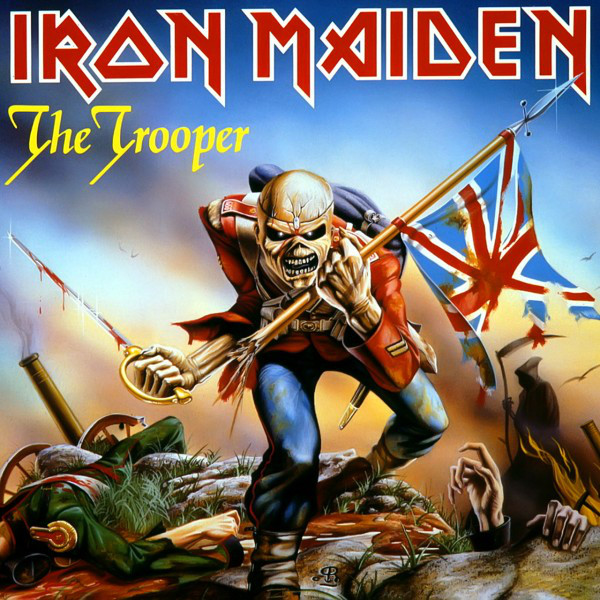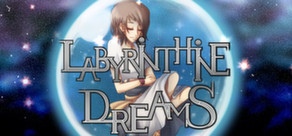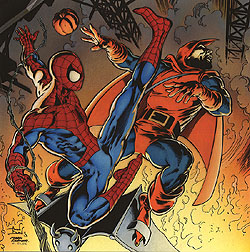
Somewhere in Time (1986)
After three albums of universally acclaimed metal glory, Iron Maiden decided to experiment. Somewhere in Time is the band's first album to feature synthesizers, manned by bassist and creative leader Steve Harris. While the synth is not nearly as excessive as other music to come out of the 1980s, the addition earned an ambivalent response from fans and would gradually cause tension in the band as well. It's worth noting that the most successful single off this album has no synth at all.
This album doesn't have the same kind of prestige as the rest of the "Golden Age" material, though the passage of time (there's a bit of irony) has been kind to it. The synth isn't the only thing that's different. The subject matter and lyrics are often surprisingly upbeat - the usual "war is hell" stuff is notably absent. However, this may not have been a negative in the end...that same big single I mentioned in the first paragraph is by far one of Maiden's most hopeful songs. As for the synth, Harris would slowly refine his skill with this powerful tool over the years and eventually switch to a real keyboard.
The epic intro to "Caught Somewhere in Time" lets you know immediately what you're in for. While the synth element does place this song a bit more firmly in the 80s than some of the band's other material from this era, I still think it sounds pretty cool. This song has a blindingly fast drum part (in general, Nicko gets a real workout on this album) and a quality sing-along chorus. I'm not sure the 7-minute length is totally justified, but it's a good listen.
 "Wasted Years" is the only track from this album that has achieved the sort of fame even close to some of the band's past hits. The opening riff, fast and menacing, is legendary among metal enthusiasts, though what's also worth noting is how non-menacing the song turns out to be. The narrator wonders if he's truly making the most of every moment, only to realize that there are no "wasted years," and worrying about that will just make you miss the "golden" ones. The upbeat chorus could just as easily be transplanted to a classic rock piece, though then you probably wouldn't have that awesome riff. The uplifting lyrics shouldn't work so well with that intimidating guitar sound, but somehow the whole song just comes together.
"Wasted Years" is the only track from this album that has achieved the sort of fame even close to some of the band's past hits. The opening riff, fast and menacing, is legendary among metal enthusiasts, though what's also worth noting is how non-menacing the song turns out to be. The narrator wonders if he's truly making the most of every moment, only to realize that there are no "wasted years," and worrying about that will just make you miss the "golden" ones. The upbeat chorus could just as easily be transplanted to a classic rock piece, though then you probably wouldn't have that awesome riff. The uplifting lyrics shouldn't work so well with that intimidating guitar sound, but somehow the whole song just comes together.There's a lot going on in "Sea of Madness," maybe too much. The guitar and especially the bass are going non-stop and Nicko doesn't seem to ever remove his foot from the kick drum. It always feels like this song should be more memorable, but it never seems to make much of an impression on me. Lyrically, it's definitely the downer in this group of tracks. The narrator looks at the insanity all around him and just...walks away. There's only so much bullshit you can deal with before it just gets to be too much, which is a theme that would return many times in Iron Maiden's work.
The epic "Heaven Can Wait" never became a single, but has become beloved within the Maiden fandom. The emotional, evocative lyrics depict a man in the throes of a near-death experience. He gets right to the gates of heaven before deciding that it can "wait for another day" and returning to life. During live shows, the band capitalizes on the song's feel-good vibe by inviting a group of fans onstage to participate in the irresistable sing-along section about halfway through the song. Good luck trying to stay in a bad mood after listening to this one.
For whatever reason, songs with very long titles don't inspire confidence. So when I looked at this album's track list and found "The Loneliness of the Long Distance Runner," I thought "what the hell kind of title is that? Good luck making that work." Well, that shows how little I know. This consistently underrated song is one of the album's best and another track that can really lift your spirits. All the instruments work together to conjure up the feeling of sprinting and watching scenery fly past. The lyrics work off the obvious metaphor for perseverance that can be derived from a long-distance race. "Must be so determined and push myself on" applies to all of life, not just a marathon.
"Stranger in a Strange Land" is a cool mid-tempo song that nicely balances the synth with the rest of the instruments. It tells the story of an Arctic explorer who is eventually frozen in ice and discovered in the future by scientists. The song was another single off the album, which is hardly surprising with the catchy riff and singing in the chorus. Interesting to note the repeated use of the phrase "brave new world," a concept which clearly resonated with the band for decades after this album was released.
Iron Maiden may be able to make seemingly mundane things like getting older or running sound totally epic with their musical style, but "Deja Vu" is pushing it. Never mind that some parts are a little too similar to "..Long Distance Runner," the lyrics combined with Bruce's singing go way into unintentional humor territory. Is having vague recollections of past events really this epic? When I'm listening to this and I hear Bruce sing "Ever had a conversation that you realize that you've had before? ISN'T IT STRAAAAANGE?!" I can't help but laugh. Maybe I'm being a bit too mean. This is still a good song, just impossible to take seriously.
 Iron Maiden has never played the eight and half minute "Alexander the Great" live, which has mystified fans for decades. The closest they got was Bruce singing the chorus through the kazoo as a gag during one of the concerts. It's a bit of a shame, since I suspect the absolutely tremendous instrumentation would carry over very well on stage. Just try not to get pumped up by the gentle, epic introduction. It definitely matches a song like "Rime of the Ancient Mariner" in terms of atmosphere, but not even close in terms of lyrics. In fact, there's a surprising lack of poetry and imagination in them. It's just a list of names, places and battles. It might make a decent study guide to Hellenistic history, but I would think they would try harder given that this is one of the most legendary warriors of all time. That said, the instruments are absolutely on fire for this one and are able to make up the difference.
Iron Maiden has never played the eight and half minute "Alexander the Great" live, which has mystified fans for decades. The closest they got was Bruce singing the chorus through the kazoo as a gag during one of the concerts. It's a bit of a shame, since I suspect the absolutely tremendous instrumentation would carry over very well on stage. Just try not to get pumped up by the gentle, epic introduction. It definitely matches a song like "Rime of the Ancient Mariner" in terms of atmosphere, but not even close in terms of lyrics. In fact, there's a surprising lack of poetry and imagination in them. It's just a list of names, places and battles. It might make a decent study guide to Hellenistic history, but I would think they would try harder given that this is one of the most legendary warriors of all time. That said, the instruments are absolutely on fire for this one and are able to make up the difference._______________________________________
Overall Strengths: The synth often adds interesting textures to the music and some of the songs reveal the band's surprising prowess at crafting uplifting songs.
Overall Weaknesses: Perhaps not quite as superb as some of its predecessors. The reasons for this vary among fans, but I personally would cite lyrical inconsistency. The writing for a few songs is paper-thin.
Recommended Tracks
Wasted Years
Heaven Can Wait
The Loneliness of the Long Distance Runner
Alexander the Great
Next: The band produces an epic concept album with "Seventh Son of a Seventh Son."







